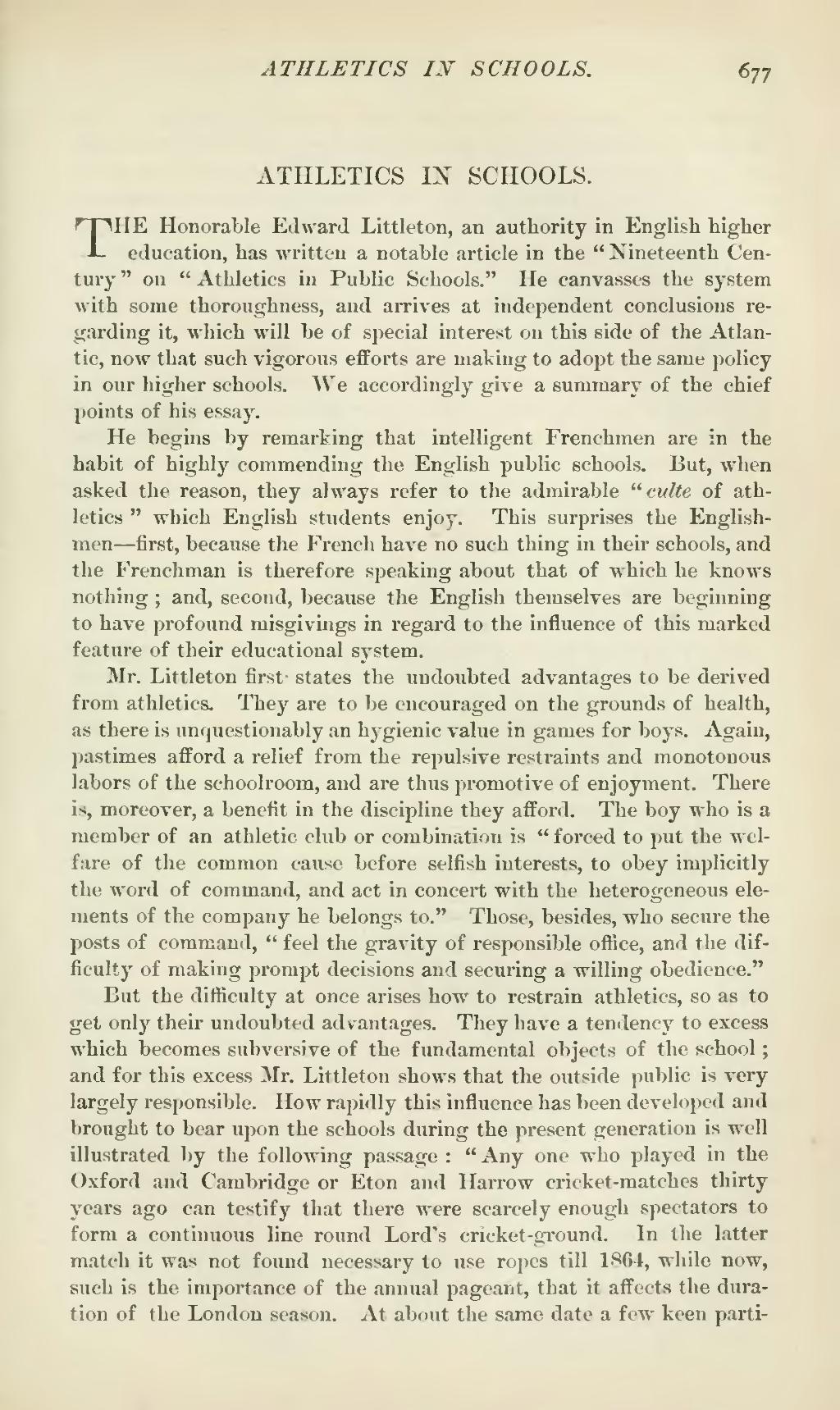| ATHLETICS IN SCHOOLS. |
THE Honorable Edward Littleton, an authority in English higher education, has written a notable article in the "Nineteenth Century" on "Athletics in Public Schools." He canvasses the system with some thoroughness, and arrives at independent conclusions regarding it, which will be of special interest on this side of the Atlantic, now that such vigorous efforts are making to adopt the same policy in our higher schools. We accordingly give a summary of the chief points of his essay.
He begins by remarking that intelligent Frenchmen are in the habit of highly commending the English public schools. But, when asked the reason, they always refer to the admirable "culte of athletics" which English students enjoy. This surprises the Englishmen—first, because the French have no such thing in their schools, and the Frenchman is therefore speaking about that of which he knows nothing; and, second, because the English themselves are beginning to have profound misgivings in regard to the influence of this marked feature of their educational system.
Mr. Littleton first-states the undoubted advantages to be derived from athletics. They are to be encouraged on the grounds of health, as there is unquestionably an hygienic value in games for boys. Again, pastimes afford a relief from the repulsive restraints and monotonous labors of the schoolroom, and are thus promotive of enjoyment. There is, moreover, a benefit in the discipline they afford. The boy who is a member of an athletic club or combination is "forced to put the welfare of the common cause before selfish interests, to obey implicitly the word of command, and act in concert with the heterogeneous elements of the company he belongs to." Those, besides, who secure the posts of command, "feel the gravity of responsible office, and the difficulty of making prompt decisions and securing a willing obedience."
But the difficulty at once arises how to restrain athletics, so as to get only their undoubted advantages. They have a tendency to excess which becomes subversive of the fundamental objects of the school; and for this excess Mr. Littleton shows that the outside public is very largely responsible. How rapidly this influence has been developed and brought to bear upon the schools during the present generation is well illustrated by the following passage: "Any one who played in the Oxford and Cambridge or Eton and Harrow cricket-matches thirty years ago can testify that there were scarcely enough spectators to form a continuous line round Lord's cricket-ground. In the latter match it was not found necessary to use ropes till 1864, while now, such is the importance of the annual pageant, that it affects the duration of the London season. At about the same date a few keen parti-
